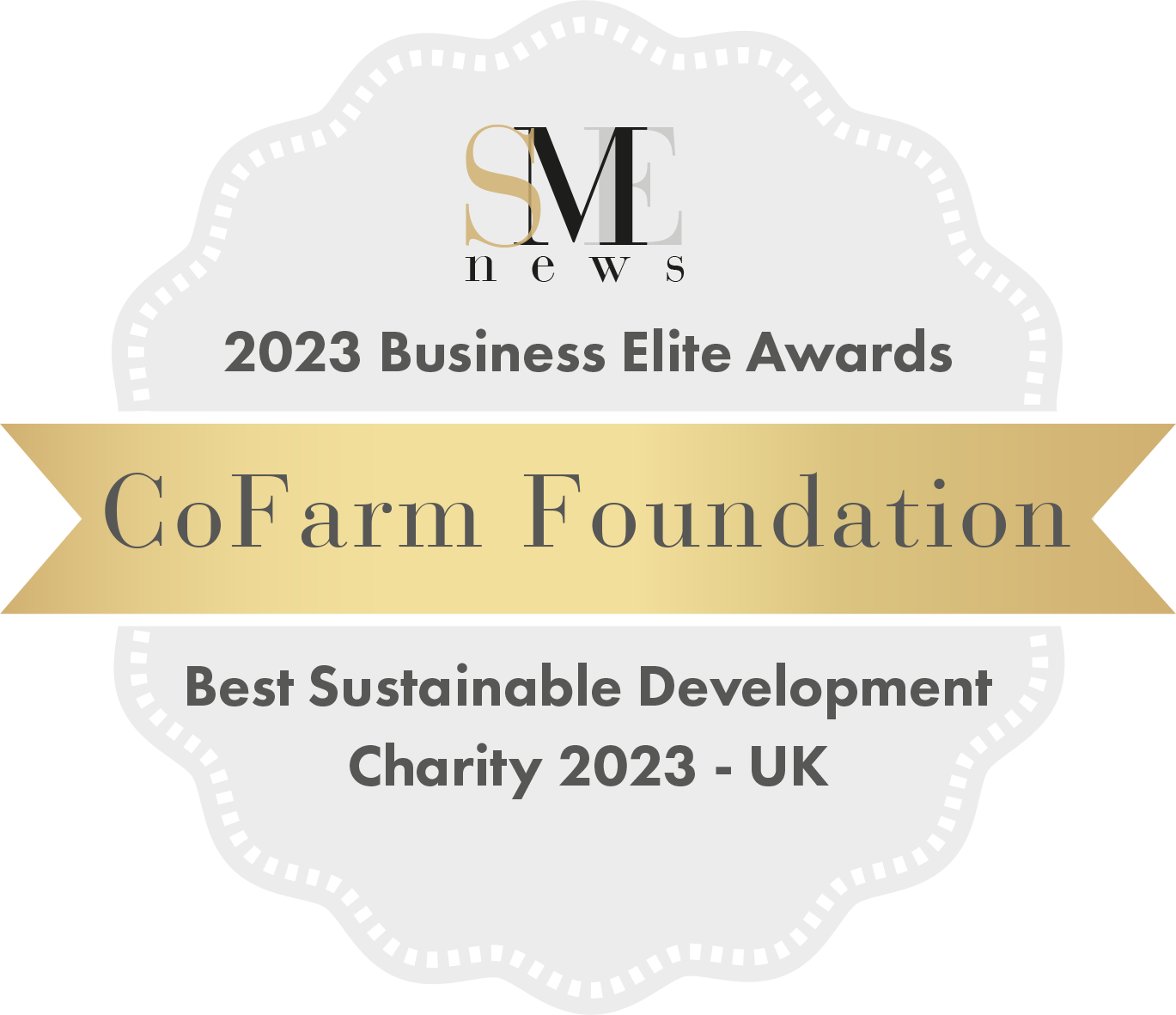In food production, insects play an incredibly important role in improving soil health, pollinating crops and regulating pests.
From being pesticide-free to creating new habitats, CoFarm Cambridge is doing lots to increase the diversity of insects in and around the farm, helping to preserve the environment and grow nutritious food.
Pesticides used in modern farming are designed to be toxic to organisms that affect plants’ growth such as fungi, insects or weeds. They also degrade soil health, and harm other insects such as bees and animals further up the food chain, including humans.
Not only this, the intensive way in which food is now farmed – growing one type of crop with few habitats for natural predators – creates an ideal environment for pests, which increases their prevalence even further and results in a vicious cycle of needing to use ever more nasty chemicals to control them.
A bee on the wildflower border
CoFarm is using agroecological farming techniques to create a thriving ecosystem that not only results in a natural regulation of pests but brings many benefits to food production and the local environment.
From bees, butterflies and hoverflies, to beetles, ladybirds and worms – CoFarm Cambridge has an abundance of insect species, and it is doing more to increase this even further.
Volunteers have recently sown four acres of wildflower meadows containing 39 types of flowers and 17 types of grasses, which will attract many invertebrate species such as hoverflies, ladybirds, bees and butterflies.
There are nearly 300 types of hoverflies in the UK. In addition to their role as a pollinator, they are particularly helpful in food production as around half of these species feed on aphids such as greenfly and blackfly, which love to munch on veggies in the brassica family, such as cabbages.
The meadows will also attract some of the UK’s 2,500 varieties of moths to the farm. These insects, which are now in decline, provide food for birds and bats and play an important role in pollinating.
‘Moths are the unsung pollinators that people forget about,’ said Dominic Walsh, horticultural co-lead at CoFarm Cambridge. ‘We already have lots of different varieties, but there is going to be more once the meadow grasses grow.’
Lacewing larvae insect house
Inside the market garden, CoFarm is growing an incredibly diverse range of crops – almost 100 types of fruits, vegetables and herbs – which in turn increases the diversity of insects such as ground beetles, spiders, ants, and ladybirds, which all eat pests.
Bugs such as woodlice and millipedes help decompose organic matter and improve soil health, essential for growing healthy plants and nutritious vegetables. The cover crops inside the market garden also help improve the nutrients in the soil and increase earthworm numbers, which improve drainage, enhance soil structure and increase nutrients – all of which help to maximise yields.
Insect houses are being used to host Chrysoperla carnea, a common type green lacewing that consumes white fly and other aphids. Soon, more insect houses will be built, such as for Phytoseiulus, a predatory mite that feeds on a particular type of pest that likes aubergines.
The market garden has two ponds that attract dragonflies, damselflies and aquatic snails that provide food for newts, frogs, toads that will hop around the garden catching the slugs before they eat the vegetable crops.
A beetle at CoFarm
Other habitats around the farm have been created this year to increase biodiversity, such as a heritage orchard containing nearly 100 fruit trees, and a hedgerow consisting of over 1,000 saplings. These habitats were created using a diverse range of trees that flower and fruit at different times to attract a greater range of insects and wildlife.
In addition to the numerous benefits they bring to farming, insects provide a vital food source for birds, bats, hedgehogs and other small mammals - the greater variety of insects, the greater variety of wildlife supported. Combined with the newly-created habitats and wildlife corridors, CoFarm is creating a place for nature to thrive.
‘We are using all of this to build up an ecological network to protect the plants, protect the food, and benefit the entire ecosystem,’ said Dominic.
Please help us continue our work by donating to our fundraiser: https://www.justgiving.com/campaign/cofarmcambridge







